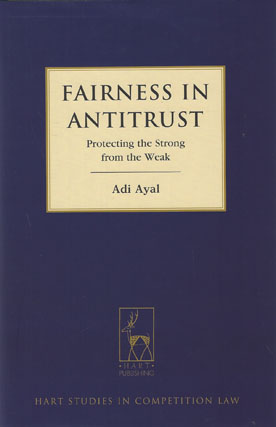We are now closed for the Christmas and New Year period, returning on Monday 5th January 2026. Orders placed during this time will be processed upon our return on 5th January.

What drives popular support for state-enforced competition policy? What is it about antitrust law that garners approval from both the public and courts, to the point of demonizing large firms convicted of antitrust offenses?
In this book Adi Ayal argues that the populist roots of antitrust are still with us, guiding sentiment towards a legal regime that has otherwise shifted towards economic analysis. Antitrust is very much about fairness and morality; this book assesses how modern policy has hijacked popular support - based on traditional conceptions of political and economic power - to combat market power in narrowly defined micro-markets.
Beginning with history, but delving into moral and political philosophy, professor Ayal shows how arguments concerning fairness in antitrust, applied both to monopolists and their victims, require a balancing test based on context and respecting the rights of both.
While traditionally fairness arguments were used to justify intervention where economic analysis did not, this book assesses them from first principles, to show that pure efficiency analysis is flawed from a moral standpoint when the state intervenes. Protecting weak consumers from strong monopolists may carry rhetorical weight, but the reality of antitrust is that the state is much more powerful than almost all firms it regulates.
Antitrust intervention is thus assessed from two standpoints: fairness towards distinct groups (both consumers and monopolists) and protection of society at large. The first raises issues with the common assumption of consumer-centrality. The second raises the dormant issue of economic power, where firms' influence grows larger than that of the state, and democratic principles require intervention even where efficiency does not.
Protecting the strong from the weak, especially when 'weak' consumers hold legal power and influence, might very well be a moral imperative.